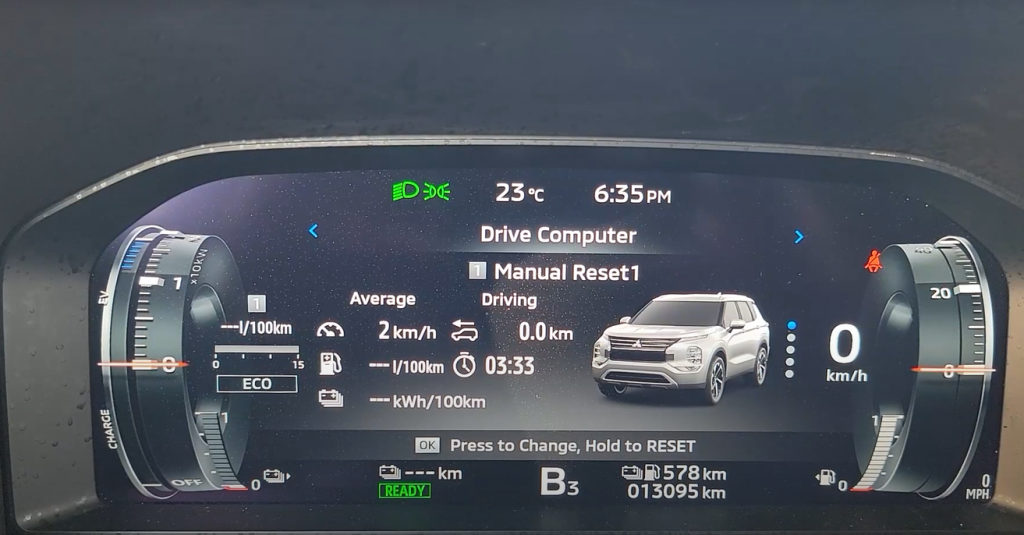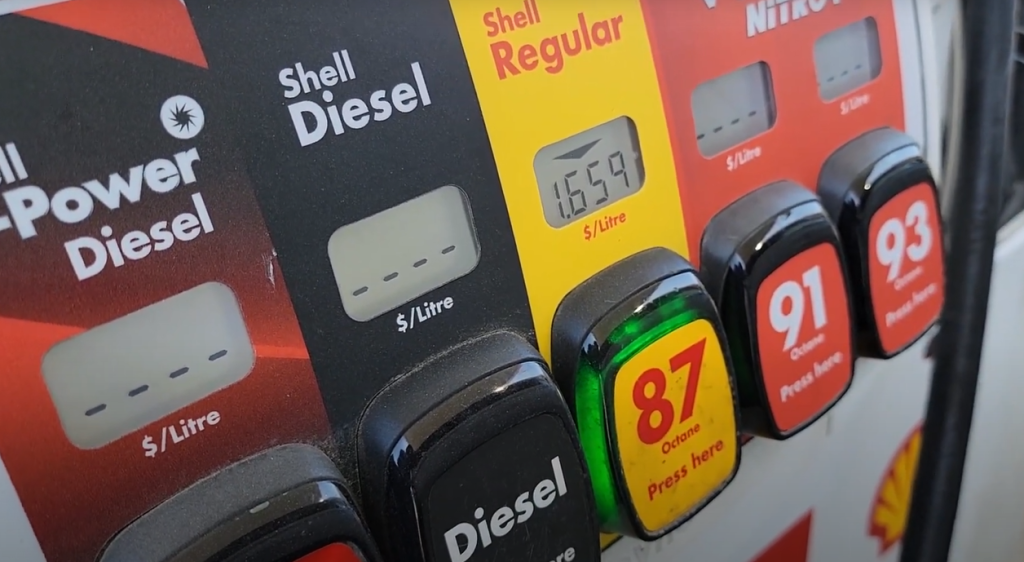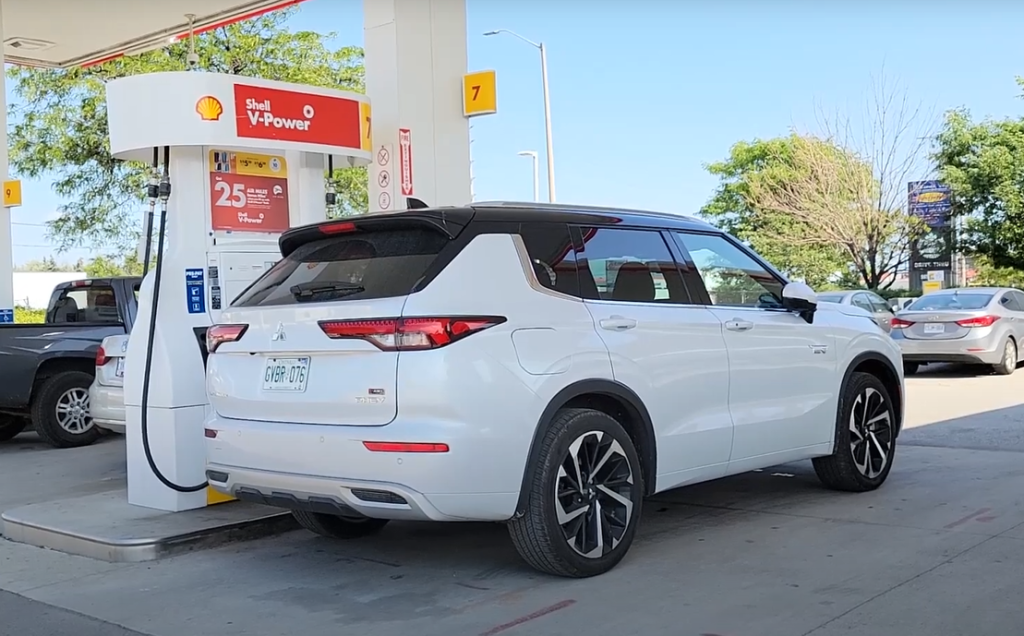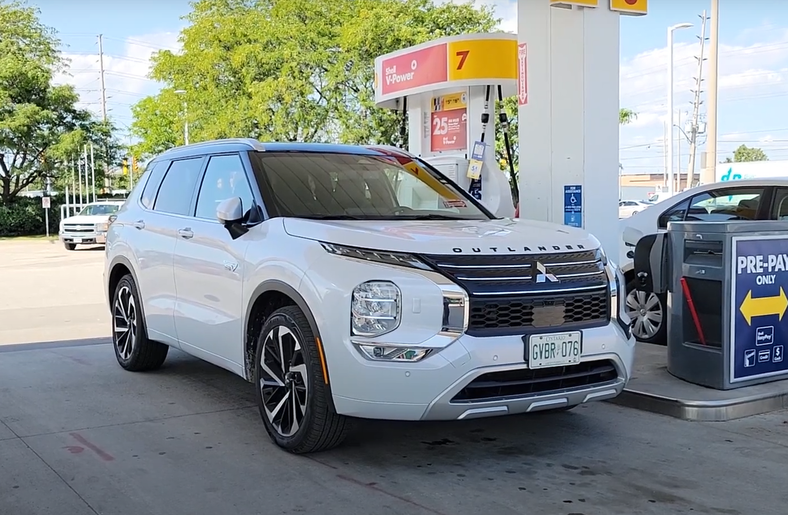Are you tired of being bombarded with myths and misinformation about the fuel efficiency of the Mitsubishi Outlander? Well, get ready to have your doubts dispelled and your curiosity satisfied as the article dives deep into the truth about this iconic SUV’s fuel efficiency. This blog post is going to debunk common misconceptions surrounding the Mitsubishi Outlander’s fuel efficiency, leaving you with a clearer understanding of just how effective this vehicle is at saving you money at the pump. So, grab a cup of coffee, sit back, and let’s uncover the real facts behind the fuel efficiency of the Mitsubishi Outlander.
Fuel Efficiency in the cars: Everything You Need to Know
Measuring Fuel Efficiency
Fuel efficiency is not only a crucial factor but also a significant consideration when contemplating purchasing a car. It refers to the distance that a vehicle can travel using a certain amount of fuel, which in turn directly impacts the overall cost of ownership and environmental impact. This essential measurement is typically expressed in terms of miles per gallon (MPG) or kilometers per liter (km/l). The higher the MPG or km/l, the more efficient the car is at utilizing fuel, resulting in potential cost savings and reduced carbon emissions. Therefore, opting for a vehicle with excellent fuel efficiency can be a wise decision that positively impacts both your wallet and the planet.

Defining Fuel Consumption
Fuel consumption refers to the actual amount of fuel consumed by a vehicle in a specific period, usually measured in liters or gallons. It is different from fuel efficiency since it takes into account external factors such as driving habits, road conditions, and vehicle maintenance. A car may have high fuel efficiency but still consume more fuel due to these external factors. As such, understanding both fuel efficiency and fuel consumption is essential in determining the true cost of owning a vehicle [1].
What Determines Engine Fuel Efficiency?
Fuel Density as a Factor in Fuel Efficiency
One of the primary factors affecting a car’s fuel efficiency is the density of the fuel it uses. This density directly impacts the amount of energy that can be extracted from a given volume of fuel, with denser fuels generally yielding more power. For example, gasoline has a higher energy density than ethanol, making it a more efficient choice for fueling vehicles. As such, the fuel density of a car’s engine plays a crucial role in its overall fuel efficiency.
Engine Technology and Design
Another significant factor that plays a pivotal role in determining a vehicle’s fuel efficiency is its engine technology and design. With continuous advancements in automotive engineering and research, manufacturers are constantly striving to develop engines that are not only more efficient and powerful but also consume less fuel. This has led to the integration of cutting-edge technologies and innovative design elements in modern engines.
For example, direct fuel injection has emerged as a game-changing technology that improves fuel efficiency by precisely injecting fuel into the combustion chamber, resulting in better combustion and reduced fuel waste. Additionally, variable valve timing allows for optimal control of the engine’s valve opening and closing, maximizing power output while minimizing fuel consumption.
By considering a car’s engine technology and design, consumers can make more informed decisions when it comes to assessing and comparing fuel efficiency. It is important to recognize that the advancements in engine technology have a direct impact on a vehicle’s overall fuel efficiency, making it an essential aspect to consider when purchasing a new car or evaluating the performance of an existing one.

Fuel Density: Combustion Efficiency, Compression Ratio, and Thermal Efficiency
The efficiency of fuel combustion, compression ratio, and thermal efficiency are additional factors that play a significant role in determining a car’s overall fuel efficiency. Efficient fuel combustion is crucial for optimal engine performance, as it ensures that the engine converts the maximum amount of energy from fuel into power for the vehicle. This process involves a precise balance of air and fuel mixture, allowing for complete combustion and minimizing wastage.
Moreover, the compression ratio of an engine also influences fuel efficiency. A higher compression ratio means that the air-fuel mixture is squeezed to a smaller volume before ignition, resulting in more efficient combustion. This leads to better fuel economy and reduced emissions.
Additionally, thermal efficiency is an essential aspect to consider for fuel efficiency. It refers to how effectively an engine can convert heat energy from fuel combustion into mechanical energy used to propel the vehicle. Engines with higher thermal efficiency can extract more useful work from the fuel, resulting in improved overall fuel efficiency.
By optimizing fuel combustion, increasing compression ratio, and enhancing thermal efficiency, car manufacturers can design vehicles that offer better fuel economy, reduced environmental impact, and improved performance.
Driving Habits and Maintenance
As mentioned earlier, driving habits and vehicle maintenance can also significantly impact a car’s fuel efficiency. Aggressive driving, such as speeding and rapid acceleration, can reduce a vehicle’s fuel efficiency by up to 33%. Similarly, poor maintenance, such as dirty air filters and low tire pressure, can also lead to decreased fuel efficiency. Therefore, adopting good driving habits and regularly maintaining your car can positively impact its fuel efficiency.
Combustion Efficiency and Fuel Additives
Fuel additives are specialized products that are added to fuel with the aim of enhancing the efficiency of fuel combustion, ultimately leading to improved fuel economy. These additives work by meticulously cleaning the internal components of the engine, removing any deposits or impurities that may hinder optimal performance. By reducing friction within the engine, fuel additives facilitate smoother operation and contribute to more effective fuel combustion.

However, it is important to exercise caution and note that not all fuel additives are equally effective or necessary for every vehicle. It is highly recommended to conduct thorough research and seek professional advice before considering the addition of any fuel additives to your car. Taking these precautions will ensure that you make informed decisions and optimize the performance of your vehicle in the long run [2].
How Does Thermal Efficiency Relate to Fuel Efficiency?
Thermal efficiency is a critical factor in determining a car’s overall fuel efficiency. It refers to the ability of an engine to convert heat energy into mechanical energy, which directly impacts its fuel consumption. Higher thermal efficiency means that an engine can convert more heat energy into power, resulting in better fuel economy and reduced emissions. As such, it is essential to consider both thermal efficiency and fuel efficiency when evaluating a vehicle’s overall energy efficiency.
In today’s world, where environmental concerns are at the forefront, fuel efficiency has become an essential factor in the automotive industry. Government regulations and consumer demand have led car manufacturers to prioritize fuel-efficient vehicles. As such, many modern cars now feature advanced engine technologies and designs that aim to improve fuel efficiency and reduce carbon emissions. With continued advancements in the automotive industry, we can expect even more efficient and eco-friendly vehicles in the future.
In conclusion, measuring fuel efficiency is crucial when considering purchasing a car, as it directly impacts its cost of ownership and environmental impact. Fuel density, engine technology, combustion efficiency, driving habits, maintenance, and thermal efficiency are all factors that affect a car’s overall fuel efficiency. By understanding and considering these factors, you can make an informed decision when choosing a vehicle with the best fuel economy for your needs. So, always keep in mind that opting for a vehicle with excellent fuel efficiency not only benefits your wallet but also contributes to a greener planet.
3 Factors That Affect the Fuel Efficiency of a Vehicle
Faulty Engine/Engine Issues
One of the main reasons for a decrease in fuel efficiency is engine problems. A malfunctioning engine can lead to poor combustion, resulting in increased fuel consumption. Common engine issues, such as dirty air filters, faulty spark plugs, and low oil levels, can all contribute to reduced fuel economy.
Dirty air filters restrict the airflow to the engine, making it work harder and consume more fuel. Faulty spark plugs can cause incomplete combustion, leading to wasted fuel. Low oil levels can result in increased friction and heat, reducing the engine’s efficiency.
To maintain optimal fuel efficiency, it is crucial to prioritize regular maintenance and promptly address any engine issues. Regularly replacing air filters, inspecting and replacing spark plugs, and ensuring sufficient oil levels can help keep your car’s engine running efficiently. By doing so, you can maximize fuel economy and save on fuel costs in the long run.

Aerodynamics and Vehicle Weight
The aerodynamic design of a vehicle plays a crucial role in its fuel efficiency. By minimizing air resistance, a car with a sleek, streamlined shape can achieve improved fuel economy compared to a bulky or boxy car. Additionally, the weight of a vehicle has a direct impact on its fuel efficiency. Heavier cars require more power to overcome inertia and move, leading to increased fuel consumption.
To address these challenges, manufacturers are constantly striving to enhance the aerodynamics of vehicles, exploring innovative solutions to minimize drag and optimize airflow. They are also investing in lightweight materials and advanced engineering techniques to reduce the overall weight of vehicles without compromising safety. These advancements contribute to improved fuel efficiency, making vehicles more eco-friendly and cost-effective for consumers.
By focusing on both aerodynamics and weight reduction, manufacturers are making significant strides in maximizing fuel efficiency, promoting sustainability, and reducing carbon emissions. These efforts not only benefit the environment but also offer long-term cost savings for drivers, making it a win-win situation for all.
Type and Grade of Fuel
The type and grade of fuel used in a car can significantly impact its fuel efficiency. It’s important to note that different cars are designed to run on specific types of fuel, such as unleaded gasoline or diesel, and deviating from these recommendations can have adverse effects. For instance, using the wrong type of fuel can lead to decreased performance and reduced fuel efficiency, causing you to spend more on fuel expenses.
Additionally, it’s worth mentioning that using a higher grade of fuel than recommended by the manufacturer may not necessarily provide any additional benefits in terms of improved fuel economy. Therefore, it is crucial to adhere to the manufacturer’s guidelines and use the correct type and grade of fuel for your car to ensure optimal fuel efficiency and save both money and resources in the long run [3].
How to Improve Your Mitsubishi Fuel Economy?
As a Mitsubishi owner, there are several things you can do to improve your car’s fuel economy. Regular maintenance and prompt repairs are crucial in ensuring that your car’s engine is running efficiently. Additionally, maintaining proper tire pressure, using the recommended type and grade of fuel, and adopting good driving habits can all contribute to better fuel efficiency.

Mitsubishi also offers various hybrid and electric vehicle options that provide even better fuel economy. These vehicles combine traditional engines with electric motors to maximize energy efficiency and reduce emissions. By opting for a Mitsubishi hybrid or electric vehicle, you can significantly improve your fuel economy and lessen your environmental impact.
In conclusion, understanding the factors that affect fuel efficiency and taking necessary steps to improve it is crucial in today’s world. As a Mitsubishi owner, you have access to various resources and options that can help you achieve better fuel efficiency and contribute to a greener planet. By prioritizing fuel efficiency and making conscious decisions when it comes to your vehicle, you can make a positive impact on the environment while also saving money in the long run.
FAQ
How much fuel does Mitsubishi Outlander use per 100km?
The fuel consumption per 100km for a Mitsubishi Outlander varies depending on the engine model and driving conditions. On average, the Mitsubishi Outlander uses approximately 7-8 liters of fuel per 100km. However, opting for the hybrid or electric version can significantly improve fuel efficiency and reduce fuel consumption. It is always recommended to refer to your owner’s manual for the most accurate fuel consumption information.
What type of fuel should I use for my Mitsubishi Mirage?
The Mitsubishi Mirage is designed to run on regular unleaded gasoline with an octane rating of 87 or higher. Using a lower grade of fuel than recommended can lead to decreased performance and reduced fuel efficiency. It’s also essential to avoid using diesel or any other alternative fuels in the Mitsubishi Mirage. Adhering to the manufacturer’s guidelines for fuel type and grade is crucial for optimal performance and fuel efficiency. So, always refer to your owner’s manual or consult a certified mechanic if you have any doubts.
Does driving at high speeds affect my Mitsubishi’s fuel economy?
Yes, driving at high speeds can significantly impact your Mitsubishi’s fuel economy. The faster you drive, the more wind resistance your car faces, leading to increased fuel consumption. Additionally, aggressive driving habits such as rapid acceleration and braking can also reduce fuel efficiency. To improve your Mitsubishi’s fuel economy, it is recommended to maintain a steady speed and avoid sudden changes in acceleration or braking. Safe and responsible driving not only improves fuel efficiency but also ensures the safety of yourself and others on the road. By following these tips, you can maximize your Mitsubishi’s fuel economy and contribute to a more sustainable future. So, make sure to keep these factors in mind and take necessary steps to improve your vehicle’s efficiency for the benefit of both yourself and the environment.
Does Mitsubishi have good fuel economy?
Mitsubishi offers a wide range of vehicles with varying fuel efficiency ratings. However, the brand is continuously investing in innovative technologies and lightweight materials to improve fuel economy across its lineup. Additionally, Mitsubishi also offers hybrid and electric vehicle options that provide even better fuel economy compared to traditional gasoline-powered cars. With proper maintenance and conscientious driving habits, Mitsubishi can offer competitive fuel economy and help you save on fuel expenses in the long run.
Is Mitsubishi Outlander PHEV fuel-efficient?
Yes, the Mitsubishi Outlander PHEV (Plug-in Hybrid Electric Vehicle) is known for its excellent fuel efficiency. It combines a traditional gasoline engine with an electric motor to provide an impressive 74 MPGe (Miles Per Gallon Equivalent) in all-electric mode and 26 MPG in hybrid mode. This makes the Outlander PHEV one of the most fuel-efficient SUVs in its class. Additionally, the PHEV version also qualifies for various government incentives and tax credits, making it an even more eco-friendly and cost-effective choice for car owners. So, if you’re looking for a fuel-efficient and environmentally friendly vehicle option, the Mitsubishi Outlander PHEV is worth considering.
What determines the efficiency of a fuel?
There are several factors that determine the efficiency of fuel, including its chemical composition, octane rating, and energy density. The type and grade of fuel also play a significant role in determining fuel efficiency. In general, fuels with higher energy density (i.e., more potential energy per unit volume) tend to provide better fuel economy. Additionally, factors such as vehicle design, driving habits, and environmental conditions also impact fuel efficiency. It is crucial to use the recommended type and grade of fuel for your vehicle and follow good driving practices to achieve maximum fuel efficiency. So, always refer to your owner’s manual or consult a certified mechanic for guidance on choosing the right fuel for optimum performance and efficiency.
Conclusion Paragraph
So, the fuel-efficiency of Mitsubishi Outlander and other Mitsubishi vehicles is determined by several factors, including the type of fuel used, driving habits, and vehicle design. As a responsible car owner, it is essential to prioritize fuel efficiency and make conscious decisions that can contribute to a greener planet. By choosing a Mitsubishi hybrid or electric vehicle, you can significantly reduce your environmental impact while also saving on fuel expenses in the long run. Additionally, adhering to proper maintenance and safe driving practices can further improve fuel efficiency and ensure your vehicle’s optimal performance.
2022 Mitsubishi Outlander – MPG Test | Real-world Highway Range
References
- https://www.caranddriver.com/research/a32780283/fuel-efficiency/
- https://rentar.com/determines-engine-fuel-efficiency-gas-mileage-vehicle/
- https://www.elginvw.com/blog/what-factors-affect-the-fuel-efficiency-of-a-vehicle/

